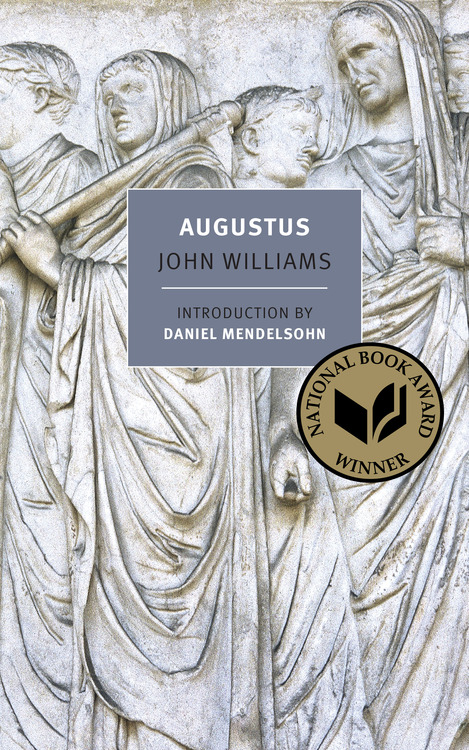
To celebrate the NYRB Classics reprint of John Williams’ Augustus, we’re excerpting a section from the book: a letter from the poet Gaius Maecenas to the historian Livy. See more about the book here.
IX. Letter: Gaius Cilnius Maecenas
To Titus Livius (13 B.C.)
Some years ago my friend Horace described to me the way he made a poem. We had had some wine and were talking seriously, and I believe that his description then was a more accurate one than that contained more recently in the so-called Letter to the Pisos—a poem upon the art of poetry which, I must confess, I am not particularly fond. He said: “I decide to make a poem when I am compelled by some strong feeling to do so—but I wait until the feeling hardens into a resolve; then I conceive an end, as simple as I can make it, toward which that feeling might progress, though often I cannot see how it will do so. And then I compose my poem, using whatever means are at my command. I borrow from others if I have to—no matter. I invent if I have to—no matter. I use the language that I know, and I work within its limits. But the point is this: the end that I discover at last is not the end that I conceived at first. For every solution entails new choices, and ever choice made poses new problems to which solutions must be found, and so on and on. Deep in his heart, the poet is always surprised at where his poem has gone.”
I thought of that conversation this morning when I sat down to write you once again of those early days; and it occurred to me that Horace’s description of the making of a poem had certain striking parallels to our own working out of our destinies in the world itself (though if Horace heard this, and recalled what he said, he would no doubt scowl dourly and say that it was all nonsense, that you made a poem by discovering a topic, disposing the topic properly, by playing this figure against that, by this disposition of the meter against that sense of the language, and so forth and so on).
For our feeling—or, rather, Octavius’s feeling, in which we were caught up as the reader is caught in a poem—was occasioned by the incredible murder of Julius Caesar, an event which seemed more and more to have simply destroyed the world; and the end that we conceived was to have revenge upon the murderers, for the sake of our honor and the state’s. It was as simple as that,...
You have reached your article limit
Sign up for a digital subscription and continue reading all new issues, plus our entire archives, for just $1.50/month.
Already a subscriber? Sign in




